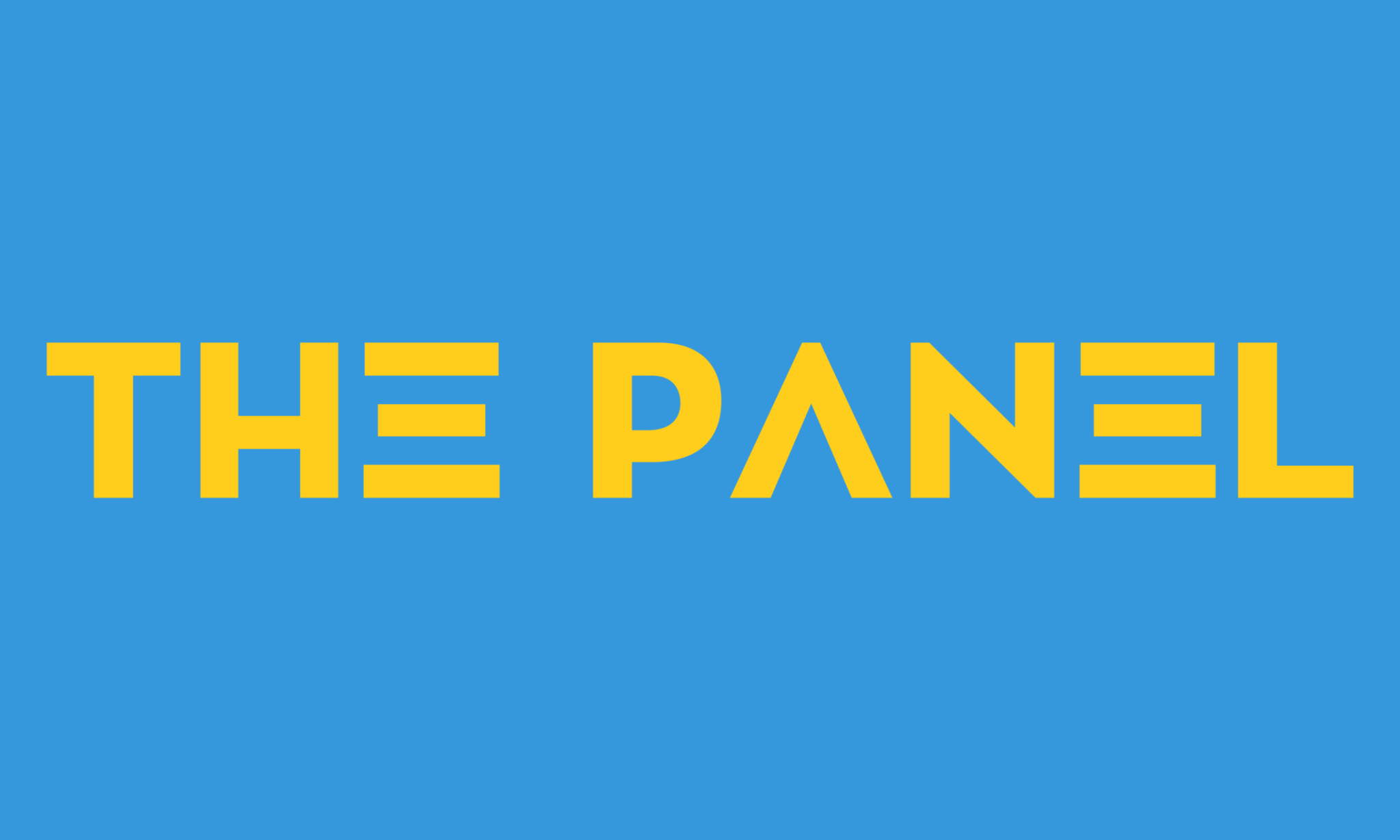Top Notch Tips About What Is A Panel In Company

About Us Read Our Panel Range & Journey The Company
Decoding the Corporate Panel
1. What Exactly Is a Panel in a Company? Let's Demystify It.
Okay, so you hear the word "panel" tossed around in a corporate setting. Immediately, do you picture some kind of decorative wall treatment? Maybe a sleek, modern installation in the lobby? Well, while aesthetically pleasing panels might exist in a company, that's not what we're talking about here (although, I do appreciate good interior design). In this context, a "panel" most often refers to a group of individuals assembled to discuss, evaluate, or make decisions on a specific topic or issue.
Think of it like this: a committee, but perhaps with a more focused and temporary objective. Its about gathering diverse perspectives and expertise to tackle something that requires more than just one person's input. They're like the Avengers, but instead of saving the world from supervillains, they're saving the company from, say, a disastrous marketing campaign or a really bad hiring decision. The fate of the company (or at least, a small part of it) rests in their capable hands.
The beauty of a panel lies in its collective wisdom. It allows organizations to tap into a wider range of experience and knowledge, leading to more well-rounded and informed outcomes. Its about getting away from siloed thinking and embracing collaboration. Plus, having multiple voices involved can often mitigate bias and ensure a fairer, more equitable process. Nobody wants a lone wolf making all the big calls, right?
Ultimately, a company panel serves as a vital instrument in decision-making, offering a nuanced approach to problem-solving and strategic planning. They're not just there to rubber-stamp whatever the boss says (hopefully!). They're there to challenge, question, and contribute their unique viewpoints to reach the best possible solution. It's all about collective intelligence!

Solar Panel Company Profile Google Slides And PowerPoint
Types of Panels You Might Encounter
2. A Panel by Any Other Name
Not all panels are created equal. Just as there are different flavors of ice cream (chocolate chip cookie dough, anyone?), there are various types of panels, each designed for specific purposes. Understanding these different types can help you navigate the corporate landscape more effectively. Think of it as knowing your way around the buffet of corporate committees.
First, you have the selection panel. This is the group responsible for interviewing and choosing candidates for a job. They pore over resumes, ask tough questions, and try to determine who is the best fit for the role. It's a high-pressure situation for everyone involved! They're basically trying to predict the future performance of a potential employee, which is a lot harder than it sounds.
Then theres the review panel. These panels evaluate proposals, projects, or policies. They might be tasked with assessing the effectiveness of a new training program or determining whether a particular marketing strategy is yielding positive results. Their job is to provide constructive criticism and identify areas for improvement. It's like being a judge on a talent show, but with spreadsheets instead of singing.
Finally, you might encounter an advisory panel. These panels offer expert advice and guidance on specific topics. They could be made up of industry leaders, academics, or consultants. Their role is to provide an external perspective and help the company make informed decisions. They're the wise owls of the corporate world, sharing their years of experience and knowledge.
Understanding these different types of panels is crucial for anyone navigating the corporate world. Knowing what kind of panel you're dealing with can help you prepare effectively and contribute meaningfully. It's all about understanding the rules of the game!

Premium Vector Solar Energy Company Flyer Template Poster Leaflet
The Benefits of Panel Discussions
3. Why Companies Love Panels
So, why do companies bother with panels in the first place? Why not just let one person make all the decisions? Well, the truth is, there are numerous benefits to using panels, and they go far beyond simply avoiding a single point of failure. They are generally viewed as a crucial element of any successful company.
One of the biggest advantages is the diversity of perspectives. When you bring together people with different backgrounds, experiences, and areas of expertise, you get a much richer and more nuanced understanding of the issue at hand. It's like having a team of detectives, each with their own unique skills and insights. This diversity can lead to more creative solutions and better decision-making overall.
Another benefit is increased transparency and accountability. When decisions are made by a panel, it's much harder for biases or conflicts of interest to creep in. The panel provides a check and balance system, ensuring that decisions are made fairly and objectively. It's like having a jury of your peers, ensuring that everyone is treated equally.
Panels also foster collaboration and knowledge sharing. Members of the panel learn from each other, expanding their own understanding and developing new skills. It's a great way to promote a culture of continuous learning and improvement within the organization. Think of it as a mini-training session, where everyone gets to share their knowledge and expertise.
Of course, panels aren't without their challenges. They can be time-consuming and require careful planning and facilitation. But the benefits far outweigh the costs, making them a valuable tool for any organization that wants to make better decisions and foster a more collaborative environment. After all, teamwork makes the dream work!

Faq The Panel
Potential Drawbacks and How to Mitigate Them
4. The Dark Side of Panels
Let's be realistic, nothing is perfect. While panels offer tons of advantages, they can also come with a few potential downsides. Ignoring these drawbacks is like ignoring the speed bumps on the road — you'll eventually hit them! Knowing what to look out for can help you navigate the panel process more effectively and avoid common pitfalls.
One common problem is groupthink. This occurs when panel members prioritize harmony and conformity over critical thinking, leading to suboptimal decisions. Everyone just agrees with the first idea that's presented, even if it's not the best one. To combat groupthink, it's important to encourage diverse perspectives and create a safe space for dissenting opinions. The panel leader should actively solicit feedback and challenge assumptions.
Another challenge is domination by certain individuals. Some panel members may be more assertive or outspoken than others, potentially overshadowing the contributions of quieter members. To address this, the panel leader should ensure that everyone has an opportunity to speak and that all voices are heard. Techniques like round-robin discussions can be helpful in ensuring equitable participation.
Time constraints can also be a problem. Panels can be time-consuming, especially if there are many members or complex issues to discuss. To make the most of the time available, it's important to have a clear agenda and stick to it. The panel leader should keep the discussion focused and ensure that everyone stays on track.
Finally, conflicts of interest can arise. Panel members may have personal or professional interests that could bias their decisions. To mitigate this risk, it's important to disclose any potential conflicts of interest upfront and to recuse panel members when necessary. Transparency and ethical conduct are essential for maintaining the integrity of the panel process.

Navigating a Company Panel
5. How to Shine
So, you've been asked to serve on a company panel? Congratulations! This is a great opportunity to contribute your expertise and influence important decisions. But before you dive in, it's important to be prepared. Here's a survival guide with tips on how to navigate the panel process and make a positive impact.
First, do your homework. Before attending the panel meeting, make sure you understand the topic at hand and have done your research. Read any relevant documents, talk to stakeholders, and identify any key issues or challenges. The more prepared you are, the more effectively you'll be able to contribute.
Second, listen actively. Pay attention to what other panel members are saying and try to understand their perspectives. Don't interrupt or talk over others. Instead, listen carefully and ask clarifying questions. Active listening shows that you value their opinions and are genuinely interested in finding common ground.
Third, express your views clearly and concisely. When it's your turn to speak, state your opinion clearly and support it with evidence. Avoid jargon or technical terms that others may not understand. Be respectful of differing viewpoints, even if you disagree. It's about finding solutions, not winning arguments.
Fourth, be collaborative. Panels are about teamwork, so be willing to compromise and work towards consensus. Don't be afraid to offer suggestions or challenge assumptions, but always do so in a constructive manner. Remember, the goal is to reach the best possible decision for the company.
Fifth, follow through. Once the panel has reached a decision, be sure to follow through on any commitments you've made. This shows that you're reliable and committed to the success of the project. It also reinforces your reputation as a valuable team player.

FAQ
6. Got Panel Puzzlement? We've Got Answers!
Still scratching your head about company panels? No worries! Here are some frequently asked questions to clear up any remaining confusion:
Q: What's the difference between a panel and a committee?
A: While the terms are often used interchangeably, panels tend to be more focused and temporary than committees. Committees often have a broader scope and are more permanent fixtures in an organization's structure. Think of a panel as a SWAT team, and a committee as a standing army.
Q: How many people should be on a panel?
A: There's no magic number, but generally, a panel should have enough members to provide diverse perspectives, but not so many that it becomes unwieldy. A good rule of thumb is to aim for 5-7 members. Too few, and you lack diversity; too many, and decision-making grinds to a halt.
Q: What if I disagree with the panel's decision?
A: It's okay to disagree! However, once a decision has been made, it's important to support it publicly. You can express your concerns privately to the panel leader, but ultimately, you need to be a team player. Remember, you're working towards a common goal, even if you don't always agree on the path to get there.
Q: How do I become a panel member?
A: Becoming a panel member often involves demonstrating expertise in a particular area and a willingness to contribute to the company's success. Volunteer for projects that align with your interests and skill set, and let your manager know that you're interested in serving on panels. Showing initiative is key!
Q: Are panels used only in big companies?
A: Nope! While they're common in larger organizations, panels can be beneficial for companies of all sizes. Even small startups can benefit from gathering a group of people to brainstorm ideas or evaluate potential risks. It's all about leveraging collective intelligence!